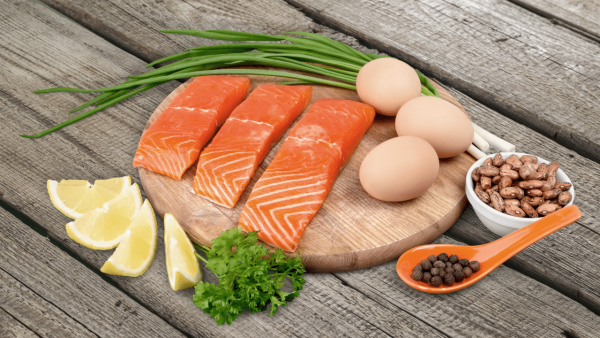
New Delhi: Protein plays a crucial role in various bodily functions, from repairing tissues to producing hormones. It acts as a building block for bones, muscles, skin, and cartilage, making it essential for growth and development, especially in children and adolescents. While athletes may focus on increasing their protein intake to enhance performance and recovery, it’s important for everyone to maintain adequate protein levels to support overall health.
Sources of protein include meat, fish, eggs, dairy products, legumes, and nuts. Incorporating a balanced mix of these foods can help ensure you meet your protein needs without exceeding the recommended daily allowance.
The Recommended Dietary Allowance (RDA) for protein is 0.8 grams per kilogram of body weight. This is the minimum amount required to avoid getting sick, not necessarily the exact amount you should eat daily. For a 50-year-old woman who weighs 63.5 kg and is sedentary, this means 53 grams of protein per day. During pregnancy, women’s protein needs increase to support the growing fetus, placenta, breasts, and blood supply. Experts recommend 75 to 100 grams of protein per day during pregnancy. It’s best to consult your doctor for specific protein needs.
For a relatively active adult, meeting the RDA for protein would provide about 10% of their total daily calories. In contrast, the average Indian gets about 16% of their daily calories from protein, both plant and animal sources. But is this too much?
Some individuals may benefit from a higher protein intake to maintain muscle mass and strength. The timing and distribution of protein intake might also affect its benefits. Studies suggest that spreading protein intake throughout the day is more effective than consuming a large amount at dinner, as many people tend to do.
Some studies suggest possible links between high-protein diets and kidney function issues. However, there is currently no solid evidence showing a direct cause-and-effect relationship between the two. Further research indicates that a high-protein diet may worsen existing chronic kidney disease.
Therefore, individuals with preexisting kidney issues should speak with their doctor or healthcare professional before making significant changes to their protein intake.
In general, there is no evidence to suggest that a moderate increase in protein consumption has negative effects on healthy individuals looking to improve their overall health.